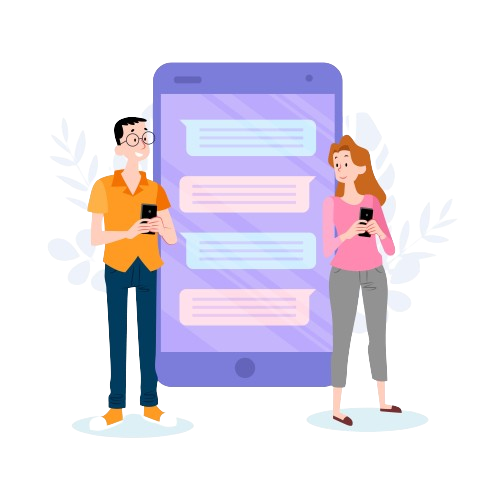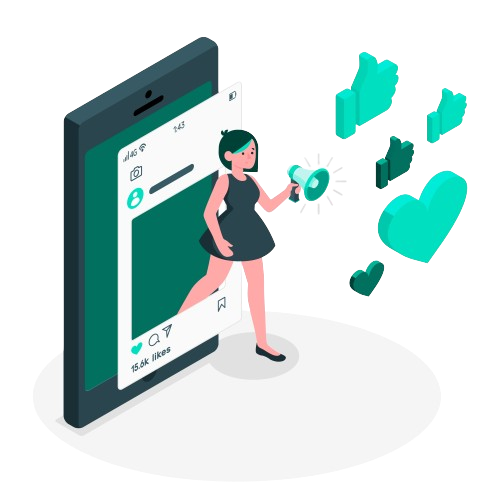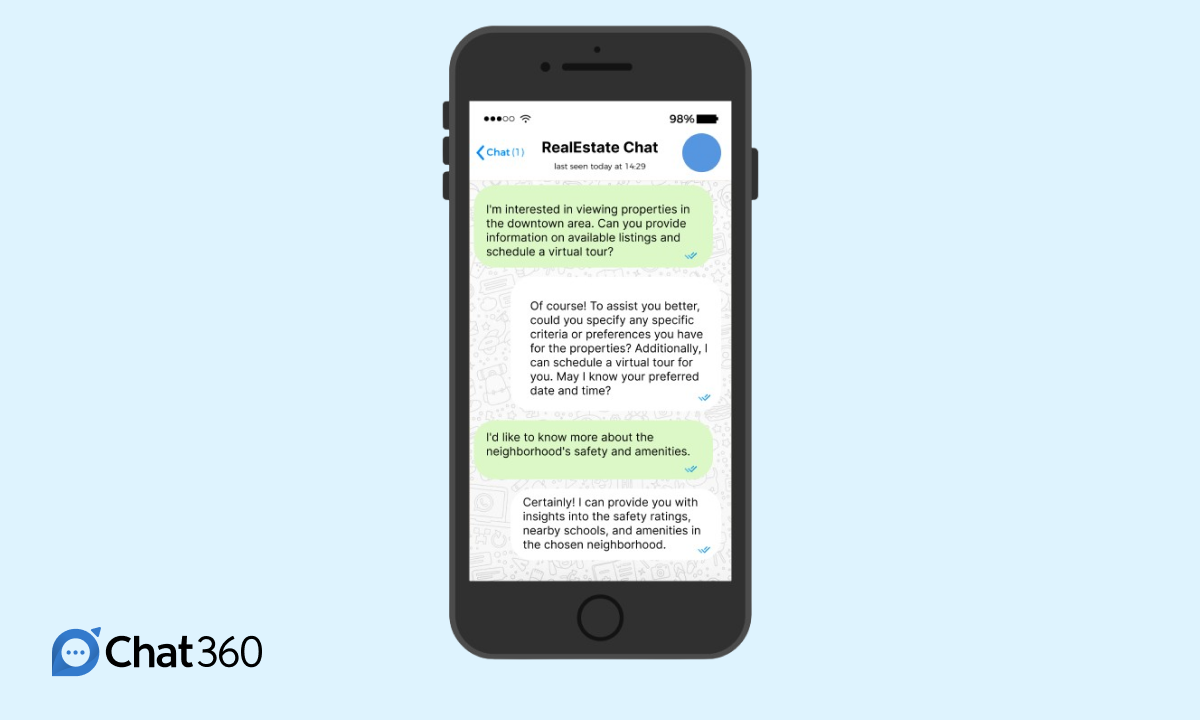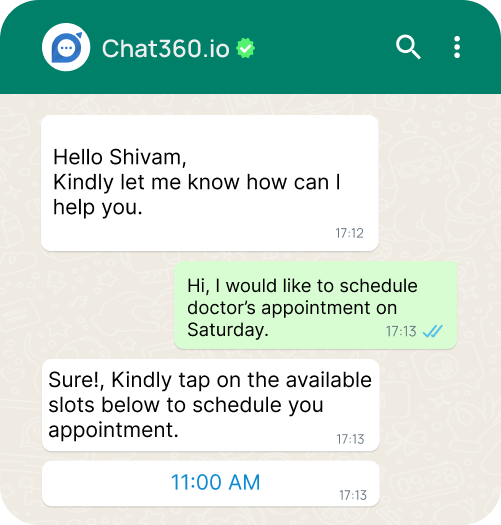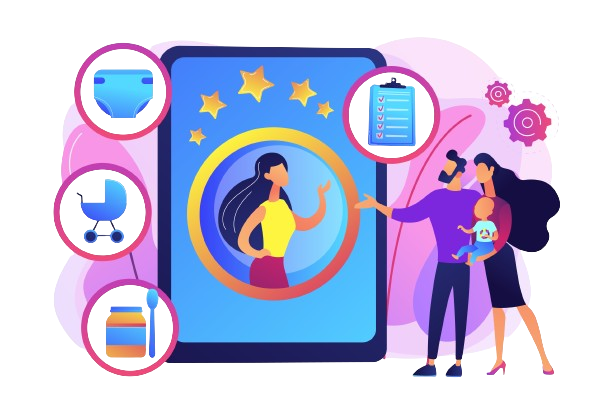Chatbots and virtual assistants have changed how organizations engage with their customers and handle work in this modern world.
Although they are both AI-powered applications meant to help users, they differ in terms of features and advantages. Chatbots are mainly employed in customer service and basic question answering, whereas virtual assistants provide more sophisticated, customized assistance.
In this blog, we will examine the differences and distinctions between virtual assistants and chatbots, as well as their features and business-beneficial applications.
We’ll look at future trends and real-world examples to assist you in selecting the right solution for your company’s requirements.
What are Chatbots & Virtual Assistants
Chatbots
As we know that Chatbots are AI-driven programs designed to simulate human conversation through text or voice interactions. They are commonly used to handle customer inquiries, provide information, and assist with simple tasks on websites, messaging apps, and other platforms.
Rule-based and AI-based chatbots are the two primary categories into which they fall. While AI-based chatbots employ machine learning and natural language processing to understand and respond to more complex and varied user inputs, rule-based chatbots adhere to predetermined rules and scripts to perform specified tasks, thus further segmentation can be made on the types of Chatbots based on it.
Virtual Assistants
Virtual assistants are advanced AI systems designed to perform a variety of tasks, offering personalized assistance to users. They can manage schedules, provide reminders, answer complex queries, and even control smart home devices, making everyday tasks easier and more efficient.
The capacities of virtual assistants to comprehend context, pick up on interactions, and provide tailored responses set them apart. They offer a comprehensive and wise user experience by integrating easily with a range of tools and services. Adaptability, multitasking, and a high degree of personalization are important traits.
Key Differences Between Chatbots and Virtual Assistants
Chatbots and virtual assistants, both powered by AI, aim to help users, but have unique purposes and functionalities. Chatbots mainly concentrate on particular duties like responding to customer questions, giving details, and managing basic interactions. They function by following set rules or AI algorithms in order to efficiently handle these tasks.
On the other hand, virtual assistants provide a wider variety of services, delivering personalized help through contextual understanding and learning from user engagements. They have the ability to handle schedules, oversee smart home devices, and carry out complicated inquiries, providing a more thorough and intelligent user interaction.
| Parameters | Chatbots | Virtual Assistants |
| Functionality | Handles specific tasks and queries | Offers a wide range of personalized services |
| Complexity | Rule-based or simple AI interactions | Advanced AI with contextual understanding |
| Use Cases | Customer service, FAQs, lead generation | Task management, smart home control, reminders |
| User Interaction | Basic text or voice interaction | Conversational and adaptive responses |
| Learning Ability | Limited learning from interactions | Continuously learns and adapts from usage |
Capabilities of Chatbots and Virtual Assistants
Chatbots and virtual assistants each bring unique capabilities to businesses, enhancing efficiency and user experience in different ways, let’s discuss each of them in detail:
Capabilities of Chatbots
1. Automation of Customer Service
Chatbots reduce wait times, improve customer satisfaction, and expedite customer service by providing prompt responses to often requested queries to ensure that clients receive prompt assistance, they handle several interactions at once.
2. Handling FAQs
When it comes to answering commonly asked questions (FAQs), chatbots excel at giving precise and reliable responses. As a result, human agents have less work to do and may concentrate on more difficult problems.
3. Lead Generation and Qualification
Chatbots can interact with users on websites, gather contact details, and qualify leads by posing relevant queries. They make sure that prospective clients are taken care of right away, increasing the likelihood that they will convert.
4. Order Processing and Tracking
Chatbots can help clients place orders and send them real-time order status updates. With their quick response times and comprehensive information, they expedite the buying process and improve the client experience throughout.
Capabilities of Virtual Assistants
1. Personal Task Management
Virtual assistants help users manage personal tasks such as setting reminders, scheduling appointments, and sending notifications. They ensure that users stay organized and on top of their daily activities.
2. Advanced Query Handling
Virtual assistants can handle complex queries by understanding context and providing detailed, relevant information. They leverage advanced natural language processing to deliver accurate and helpful responses.
3. Integration with Various Platforms and Services
Virtual assistants seamlessly integrate with a variety of platforms and services, such as calendars, email, smart home devices, and more. This allows them to offer a unified and efficient user experience across multiple applications.
4. Providing Personalized Assistance
Virtual assistants offer personalized assistance by learning from user interactions and preferences. They adapt to individual needs, providing tailored recommendations and support, thereby enhancing user satisfaction and engagement.
How Chatbots and Virtual Assistants Benefit Businesses
Chatbots and virtual assistants offer numerous benefits to businesses, each bringing distinct advantages that enhance operational efficiency and customer satisfaction. Let’s learn about them distinctively.
How Chatbots Benefit Businesses
1. Enhancing Customer Engagement
Chatbots enhance customer engagement by providing immediate responses to inquiries and guiding users through various processes. This instant interaction keeps customers engaged and satisfied with quick, helpful assistance.
2. Cost Efficiency and Scalability
Chatbots help businesses reduce operational costs by automating repetitive tasks and handling a large volume of customer interactions without the need for additional human resources. They can easily scale to meet increasing demands, making them a cost-effective solution.
3. 24/7 Availability
Chatbots offer round-the-clock support, ensuring that customers can get assistance at any time, even outside regular business hours. This 24/7 availability improves customer satisfaction and loyalty.
4. Data Collection and Analysis
Chatbots collect valuable data from customer interactions, providing insights into customer behavior, preferences, and pain points. Businesses can use this data to make informed decisions and improve their products and services.
How Virtual Assistants Benefit Businesses
1. Streamlining Operations
Virtual assistants streamline business operations by automating routine tasks such as scheduling, reminders, and data entry. This reduces administrative burdens and allows employees to focus on more strategic activities.
2. Improving Employee Productivity
By handling time-consuming tasks and providing quick access to information, virtual assistants improve employee productivity. They allow employees to work more efficiently and effectively, enhancing overall business performance.
3. Enhancing Customer Experience
Virtual assistants provide personalized and context-aware interactions, improving the customer experience. They can remember user preferences and offer tailored recommendations, making interactions more meaningful and satisfying.
4. Advanced Personalization
Virtual assistants excel at advanced personalization by learning from user interactions and continuously adapting to individual needs. This leads to a more customized and engaging user experience, fostering stronger customer relationships and loyalty.
Choosing Between Chatbots and Virtual Assistants for Your Business
The choice between chatbots and virtual assistants for your company will rely on your unique requirements and objectives. Making the best decision requires an awareness of the distinctions between the two technologies because each offers special advantages.
Here are a list of considerations before choosing the right agent for your business:
- Assess Your Business Needs: Start by evaluating the primary tasks you need to automate. If your focus is on handling customer service inquiries, FAQs, and basic interactions, chatbots may be the ideal choice. They excel in managing high volumes of simple tasks efficiently and cost-effectively.
- Consider the Complexity of Interactions: If your business requires handling more complex, context-aware interactions and providing personalized assistance, virtual assistants are the better option. They offer advanced AI capabilities and can manage a wider range of tasks, from personal scheduling to sophisticated customer queries.
- Integration and Scalability: Consider how well each technology integrates with your existing systems and platforms. Virtual assistants often provide seamless integration with various services, offering a unified experience. On the other hand, chatbots can be quickly scaled to handle increasing customer interactions without extensive integration requirements.
- Budget and Resource Allocation: Evaluate your budget and resource constraints. Chatbots are generally more cost-effective and easier to implement, making them suitable for businesses with limited budgets. Virtual assistants, while offering more advanced features, may require a higher investment in both development and maintenance.
- Tailoring Solutions to Business Goals: The choice between chatbots and virtual assistants should align with your long-term business goals. Consider how each technology can support your growth, improve customer satisfaction, and enhance operational efficiency. By carefully assessing these factors, you can choose the solution that best meets your business needs and drives success.
Chat360’s AI powered Chatbots and Virtual Assistants to Revolutionize Business Communication
Here at Chat360, we use chatbots and virtual assistants to revolutionize customer engagement and corporate communication.
Our cutting-edge artificial intelligence (AI) solutions are made to meet a variety of company requirements, such as automating customer support or offering individualized help, all while guaranteeing a smooth and effective user experience.
Chat360’s chatbots, are build to perform a variety of functions, such as processing orders, creating leads, and responding to frequently asked questions. Chat360 chatbots streamline customer interactions, boost customer satisfaction, cut down on overhead, and automate tedious jobs while responding instantly.
Our chatbots guarantee that clients get timely support wherever, at any time, as they are available around the clock.
Whereas, our virtual assistants have sophisticated features that enable them to provide individualized support beyond basic communication. They are adept at handling complicated queries, organizing schedules, and integrating easily with a range of platforms and services.
Chat360 virtual assistants provide a highly personalized and adaptive user experience, increasing customer satisfaction and efficiency by comprehending context and learning from interactions.
Choosing Chat360 means selecting the choice of cutting-edge AI technologies that promote corporate expansion. Our virtual assistants and chatbots offer flexibility, efficiency, and an enhanced user experience, and they are built to grow with your company’s demands. Work together with Chat360 to transform company communications and maintain an advantage over competitors.
Schedule a free demo today to experience the versatility of chatbots & virtual assistants.


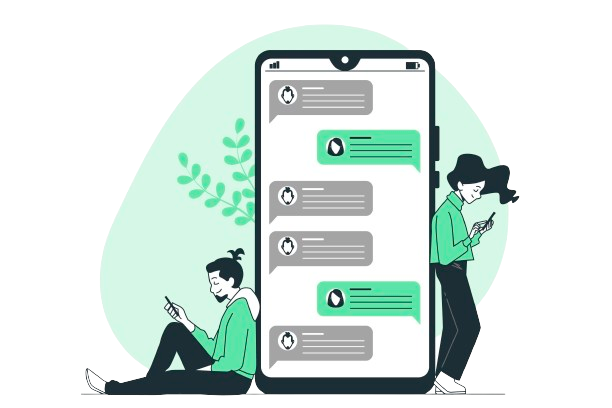

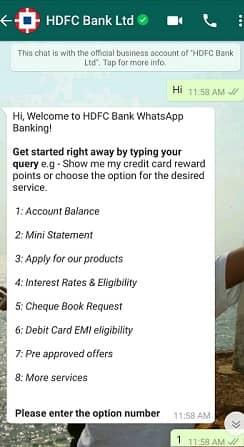
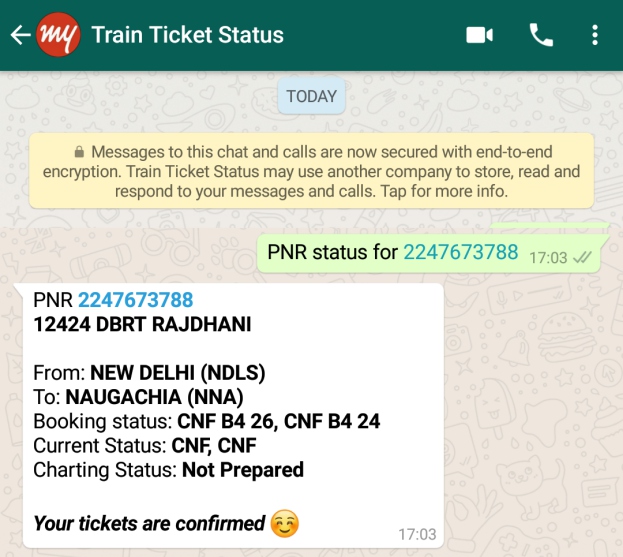
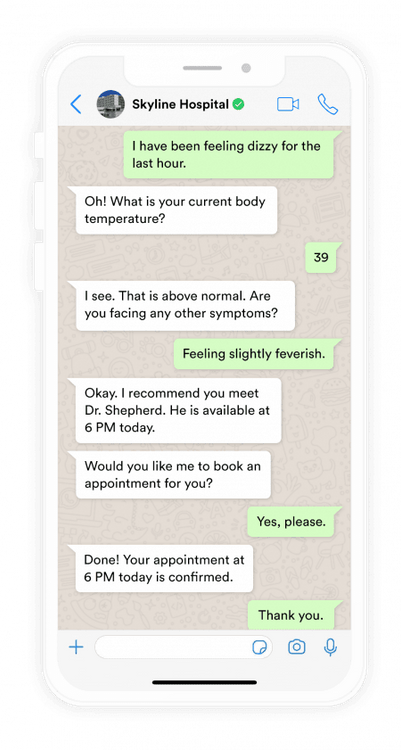
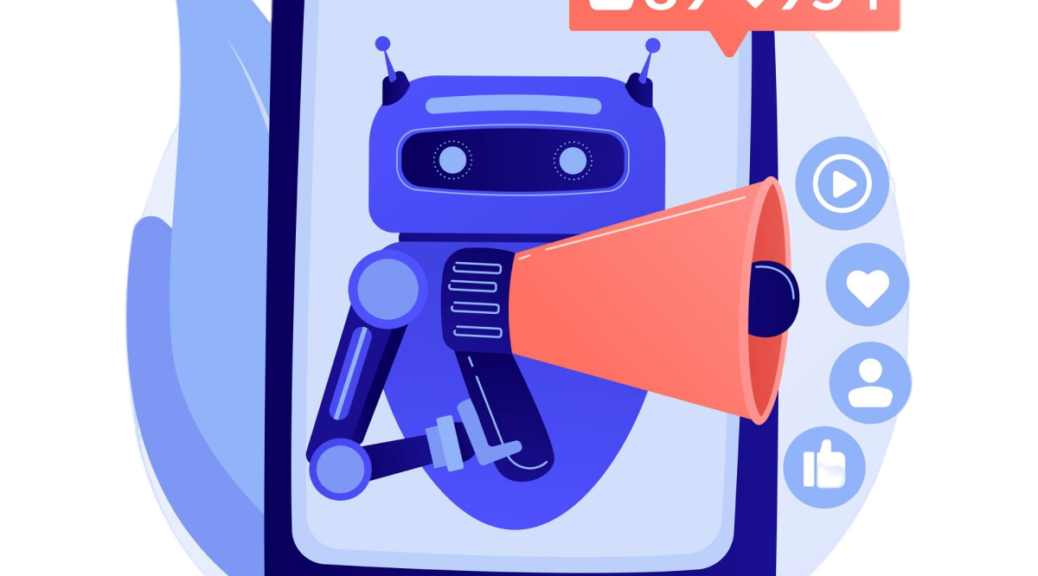
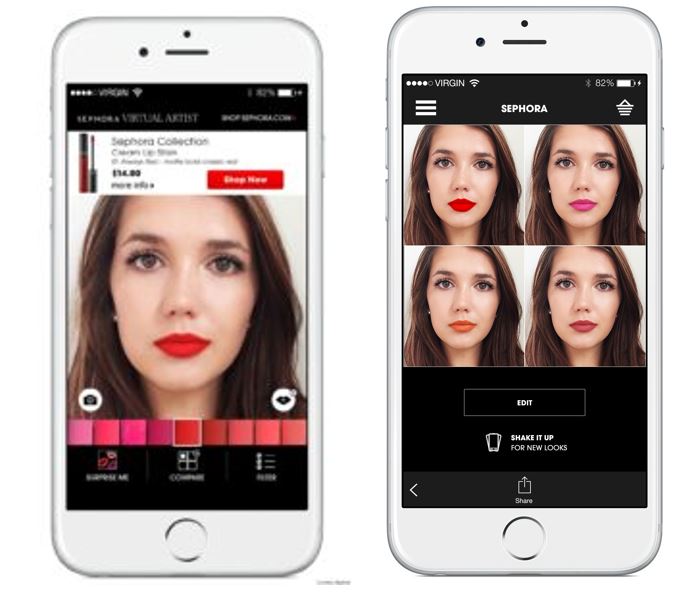
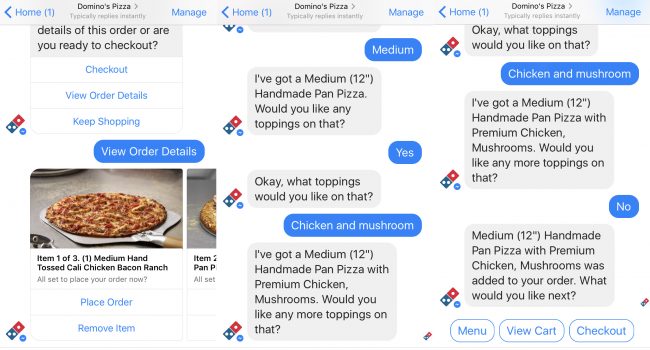


%20(1).png)

